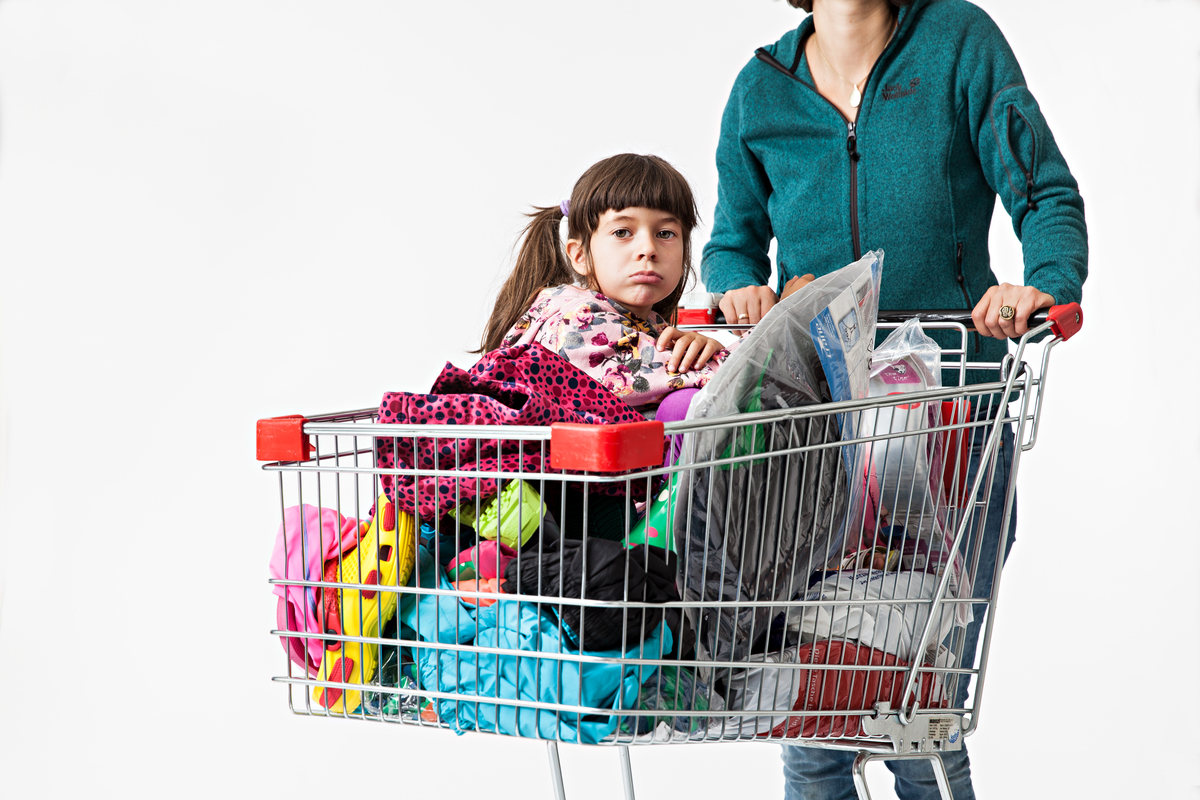Good news! It’s getting a little easier to find clothes produced by environmentally conscious discounters. Our German office did the research and announced which supermarket chains are “Detox Trendsetters” and who made the “Detox Losers” list.
(Don’t worry, if you’re on the run you can just scroll down to see which companies are making the grade and who fell far short of our Detox goals.)

Discounter children clothes and shoes. Greenpeace is testing discounter children clothes for toxic chemicals in the production chain.
Affordable clothes can also be clean – that’s now proven by several large international retailers like Aldi and Lidl. Thanks to pressure by the Greenpeace Detox campaign these major retailers are in the process of banning extremely harmful chemicals from textile production, publishing discharge data, and starting recycling programs. They are tightly following their Detox commitments to clean up production by 2020. Now it’s time for premium supermarkets like Edeka to join the Detox trend.
We are also happy to announce that supermarket chain Kaufland publicly commits to banning toxic chemicals from its textile production by 2020. Kaufland is the 33rd international brand joining the Greenpeace Detox movement, representing roughly 15 percent of the global fabric production.
Kaufland has 1,300 shops in Germany and Eastern Europe and is quickly heading for the top of the Detox list by also committing to increase its share of high quality clothing – which will last longer and is easier to recycle. When you consider the increasing amount of old clothes, this is more important than ever. Durability and repairable designs are the future of the industry.
TAKE ACTION! Customers, take your old clothes back to the discounters…
Several Detox trendsetters are already investing resources to take on responsibility for the whole life cycle of their products. This includes recycling-friendly designs without toxic chemicals, in-store take back programs to receive recyclable fabrics, and new designs that use fabrics recovered from recycling. The reuse of fabrics helps to reduce the consumption of fresh fibres and protect the environment.
Now it’s your turn. Take your clothes back to the supermarkets. The more you do that the faster supermarket chains will start recycling.
Detox Trendsetters
- Aldi
- Lidl
- Rewe/Penny
- Tchibo
- Coop
Detox Losers*
- Edeka/Netto
- Norma
- Metro/Real
- Interspar
- Migros
(*None of these companies have committed to detoxing their supply chains until 2020.)
Brian Adams is a Global Communications Strategist at Greenpeace East Asia.
